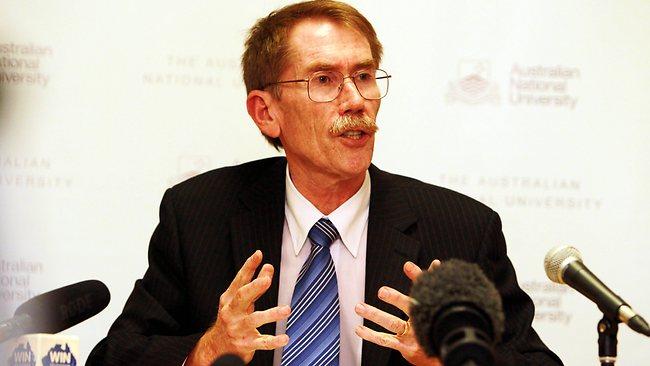Student fee hike 'likely' under Coalition government
A RISE in student contributions is on the cards if the Coalition wins the federal election, economist Bruce Chapman told a forum on Monday.

A RISE in student contributions is on the cards if the Coalition wins the federal election, economist Bruce Chapman told a forum on Monday.
But the creator of the Higher Education Contribution Scheme said it would have little or no impact on student demand because of the safety net provided by the delayed repayment system.
However, Professor Chapman said fee increases could deter mature-age and part-time students, many of whom come from poorer backgrounds.
Both Professor Chapman and Australian National University vice-chancellor Ian Young told the seminar at the University of Melbourne that any prospect of higher fees would probably be met by the government cutting back its own contribution.
"An incoming government might be tempted, as incoming governments have in the past, to raise prices. That would be unsurprising," Professor Chapman said. "But the likely effect on the behaviour of students to the kinds of price rises that might occur would be close to nothing."
He noted large fee increases in Britain last year had led to only a 10 per cent decline in applications, which he described as a "tiny" backlash to such a big rise.
Britain's Higher Education Funding Council has reported that, following fees almost trebling last year, full-time undergraduate enrolments dropped by almost 12 per cent. But that had followed a record year as students rushed to enrol to beat the fee rises. The normalised decline was probably about 9 per cent. Applications have since begun to recover, rising by 13,000 this year.
"The experience here is that increases in HECS hasn't affected participation, but the evidence in England is that there is a tipping point," LH Martin policy expert Leesa Wheelahan told the HES.
However, former Bradley review panellist Peter Noonan queried whether the current HECS system was well suited to the new emerging student profile of more mature-age people up-skilling while working, and who may be more price sensitive than school leavers.
Professor Chapman said the best way to boost participation of poor students was more generous income-support arrangements, noting that disadvantage was rooted in communities and schooling. He said HECS wasn't designed "as such" to increase the access of the poor, but to ensure their access did not decrease while also making more places available. He said the key weakness in HECS was that it was limited to covering tuition fees when it could be used to help students offset all the upfront costs of study.
In the May budget, the Gillard government took a step in this direction by converting Start Up scholarships, which are designed to help pay upfront costs for disadvantaged students, into HECS loans.
Although a fee increase would increase the cost to government as students took longer to repay their loans, any rise could well be accompanied by a cut in the government's contribution.
"There are colleagues who have talked about it as if higher charges means more revenue for the sector, but I don't see any connection," Professor Chapman said.
Professor Young agreed, but went further, saying the debate over fee deregulation appeared to have run its course. "I think everyone now gets the idea that letting the market rip doesn't actually work here. The rhetoric around that has largely disappeared," he said. "But I also suspect we won't necessarily see such radical change in the system that some people might think."


